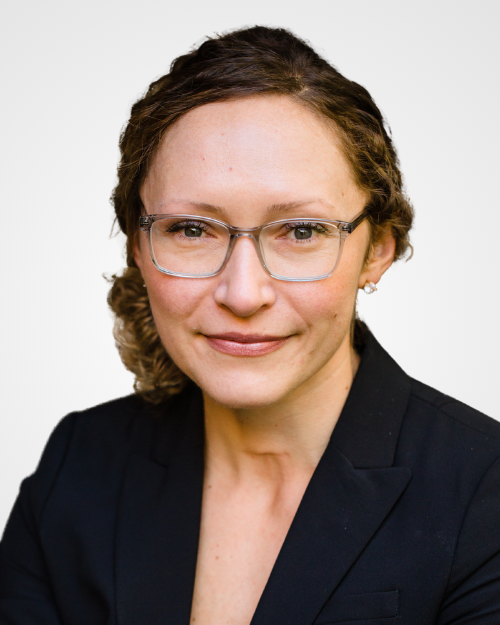Development plans are an essential tool for nonprofits seeking strategic, sustainable annual fundraising growth. According to a survey of 2,722 nonprofits conducted by CompassPoint, 93% of organizations considered to be “top performers” operated their fundraising program with a formal development plan. While development plans take many shapes and sizes on paper, the most effective plans are measured by the actions and an organizational culture of philanthropy they inspire off the page.
At CFA, we regularly partner with nonprofits to conduct development assessments to elevate key fundraising programs, such as annual giving or major gifts, while simultaneously strengthening their operations in anticipation of future campaigns. Our comprehensive assessments, recommendations, and support are customized based on the unique needs and opportunities of each organization we serve.
Whether your organization has an established approach for development planning or is starting from scratch, consider the following key principles for creating or refreshing, implementing, and sustaining an actionable development plan that will generate fundraising results.
What is a Development Plan?
An organizational document summarizing quantitative and qualitative fundraising goals, strategies, activities, accountabilities, and resources for each fundraising program within an organization’s fundraising team.
What is a Development Planning Process?
A collaborative process in which every member of a fundraising team takes responsibility for the goals assigned to them and contributes to the overall effort of reaching those objectives.
Building Blocks of an Actionable Development Plan
Structure is paramount when it comes to creating a development plan that will drive action – both in terms of the planning framework itself as well as the process used to articulate the plans behind the fundraising strategy.
CFA Senior Consultant Rob Ruchotzke brings more than a decade of annual giving experience and offers strategic guidance to organizations creating and implementing development plans. “While there is no ‘one-size- fits-all’ approach, development plans should always reflect an organization’s mission and goals, structure, and strategies,” shares Rob. Development plans require clear and attainable fundraising goals established in collaboration with organizational leadership and tied to specific programmatic needs and strategic priorities. Most importantly, development plans must be user-friendly and actionable with clear milestones and responsibilities.
When creating a development plan that will work best for your team and organization at large, consider the level of detail necessary based on the experience of your staff, co-dependencies within the team or broader organization, and other internal stakeholders that will reference the plan. Rob encourages organizations to use bookmarks within longer planning documents to allow for easy navigation, in addition to integrating work management tools to track progress on a tactical level throughout the year. For organizations with an existing development plan, Rob suggests a close review to ensure the plan meets this criteria and is structured in an accessible format.
Once a development plan framework has been finalized, determine the categories within each fundraising program as well as any important strategies to document. These categories, which may be organized by department, donor segment, strategy, or a combination (i.e. major gifts, annual giving, foundation giving, planned giving, memberships, events, etc.), will provide an overarching framework for the plan and identify staff responsible for completing or contributing to certain sections of the document.
Engaging Your Team in Development Planning
With defined fundraising goals, a structured development framework, and through an intentional planning process, your team will gain increased clarity and alignment as you work together to chart the course toward your organization’s fundraising goals.
The creation of a development plan should involve your full fundraising team and any other staff involved on a day-to-day basis. Start with a team meeting to introduce the purpose and objectives, review the plan framework, and discuss roles and next steps. Rob recommends facilitating the process of documenting fundraising programs and strategies by asking staff to draft the plan section(s) they are responsible for, either individually or in small groups, based on areas of accountability. Rob has also had success using surveys to centralize and streamline the collection of inputs from each team member contributing to the plan.
However you go about collecting information, once complete, compile the details into one cohesive document. As the development plan is finalized, engage staff to make adjustments while identifying any important mechanisms or processes that require further documentation or clarification (i.e. stewardship, moves management, segmentation, partnerships, engagement, specific appeals, events, giving initiatives, etc.).
Executing & Sustaining Your Development Plan
With a solid plan on paper, the real work of activating your fundraising programs and overseeing the plan’s implementation begins. “The last thing you want is a robust development plan that sits on a shelf for the rest of the year,” shares Rob. By establishing a detailed implementation plan with specific touchpoints and a regular cadence for review and updates, your development plan will remain a dynamic tool reflecting work underway, capturing learnings, and tracking progress toward targets and milestones.
To maintain the plan’s relevance and reflect the evolving nature of fundraising efforts, Rob suggests reviewing the plan as a team quarterly, in addition to more frequent use within cross-functional teams and one-on-one meetings between staff and supervisors to capture updates, ensure continued alignment and accountability, and adjust the plan as needed throughout the year.
Benefits of Development Planning
The benefits of the development planning process, as well as the resulting document, extend beyond any fundraising team by advancing an overall organizational culture of philanthropy. Development planning lays the foundation for future organization growth by:
- Clarifying goals by outlining key strategies, milestones, and progress measures.
- Encouraging confidence in the development team, demystifying the fundraising process and reinforcing the complexity and nuances of fundraising.
- Promoting buy-in and increased accountability by illuminating key actions and support needed from key stakeholders to reach certain targets.
- Allowing executive and board leadership to monitor and measure progress toward the goals of the development office.
- Providing structure for the work of the board development committee and insight to the full scale of the development effort.
Development planning is an important process to introduce and revisit on an annual basis to support your organization’s annual fund growth. Even for organizations with a consistent fundraising strategy year over year, development planning breaks down silos, eliciting creative approaches and increased connectivity between efforts to maximize fundraising results. Establishing a regular practice of annual planning also sets the foundation for developing longer-range fundraising plans to tackle larger endeavors.
Whether your organization has an existing development plan or is creating one for the first time, refer to CFA’s Development Planning Guide to ensure that your planning framework and process result in an active and relevant tool that will guide your team toward fundraising success.
CONTACT US
If you are interested in support to assess your development program and develop an actionable development plan, contact CFA today to explore how we can help.
Rob Ruchotzke, Senior Consultant
As a Senior Consultant with CFA, Rob focuses on providing annual giving strategy, development assessments, campaign feasibility studies and campaign counsel. Rob uses his past annual giving experience and passion for building relationships to find the right solution for CFA’s partners.
Since joining CFA in 2022, Rob has provided counsel to clients including the Community School of Naples, Goodwill-Easter Seals of Minnesota, the Jacques Pépin Foundation, Quarry Hill Nature Center, and the University of Northern Iowa Foundation.
Rob brings more than nine years of annual giving experience in higher education and university organizations. His career began at Ruffalo Noel Levitz as a Project Center Manager (PCM) for Missouri S&T. In that role, Rob supervised student fundraisers and became a PCM trainer and mentor. Then, he joined the Missouri S&T Advancement team as an Annual Giving Officer, managing his own portfolio of donors and assisting with multi-channel mass donor outreach.
Most recently, Rob served as the Director of Annual Giving at Wartburg College and then at his alma mater, the University of Northern Iowa (UNI). As Director of Annual Giving, Rob led multi-channel campaigns, developed crowdfunding platforms, served as the primary contact for annual giving vendors, redesigned giving forms for ease of use, supported annual giving staff leading the student engagement center outreach and served as the lead for UNI’s Day of Giving strategy.
A native of Camanche, Iowa, Rob holds a BA in Public Relations from UNI. He currently resides in Cedar Falls, IA, enjoying virtual meeting appearances from his cat Loki and participating in any outdoor activity.
Kendall Carlson, Content Writer
A frequent contributor to CFA’s digital content, Kendall Carlson has spent her career advancing nonprofit organizations across the Twin Cities. With 16 years of experience, Kendall brings a balance of strategic and operational leadership spanning fundraising, program development, evaluation, and strategic planning.
Most recently, Kendall served as Development and Communications Director at Hired, where she diversified revenue for the organization’s $11M budget and increased individual giving by 60%, led a rebrand, and launched an organization-wide data for impact initiative. Prior to Hired, Kendall served at Greater Twin Cities United Way, where she led an advancement strategy team to increase investment and engagement from the organization’s top corporate and major donors. Kendall is known as a strategic, solution-oriented leader with a high capacity for detail and commitment to quality. She launched her consulting practice, Luminate Consulting, in 2022 to bring her skills in fundraising and program strategy to nonprofits seeking sustainable growth.


